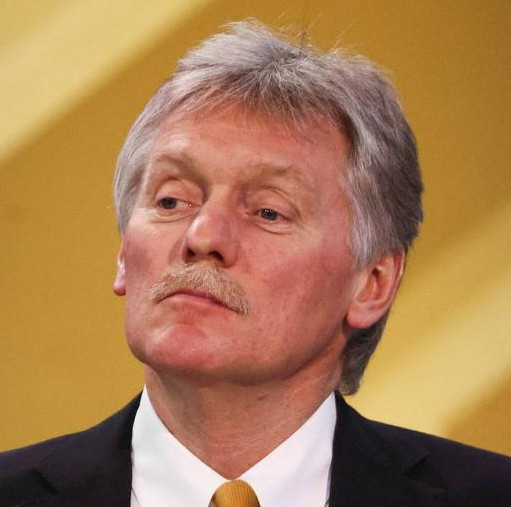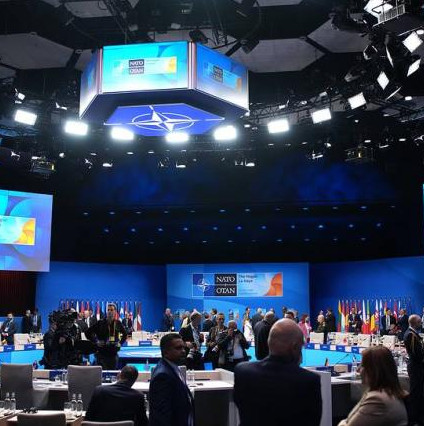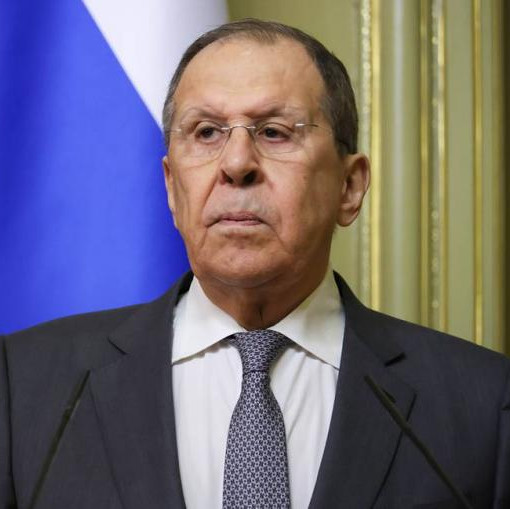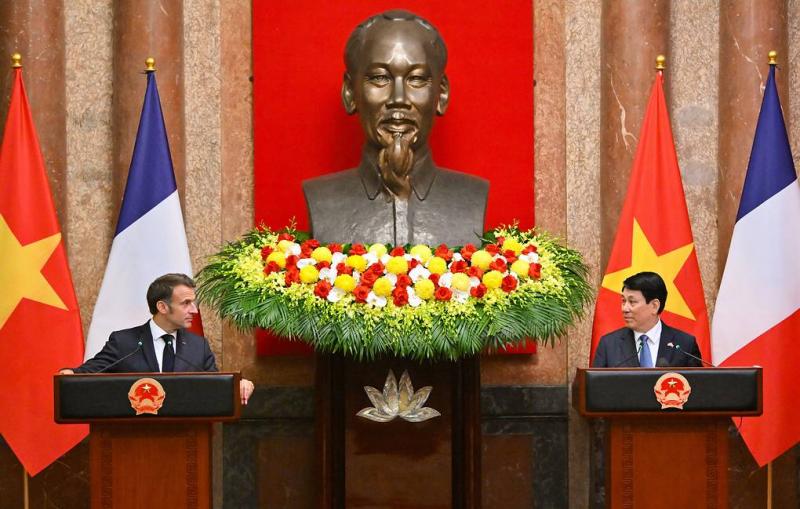Ankara aims to assert its role as a key moderator in the Ukraine conflict; France seeks to reclaim its influence in Asia; and Kiev urges Ukrainians to brace for a prolonged conflict with Russia even after a peace deal. These stories have topped Tuesday’s newspaper headlines across Russia, according to TASS News Agency.
Media: Ankara seeks to reinforce role as key moderator in Ukraine conflict
Russian President Vladimir Putin has received Turkish Foreign Minister Hakan Fidan in the Kremlin. Prior to that, the top Turkish diplomat met with Russian Presidential Aide Vladimir Medinsky, who led Moscow’s delegation to the recent Istanbul talks with Ukraine, Vedomosti reports.
This is the first Russia visit by a Turkish official since May 16, when Russia and Ukraine restarted the direct talks in Istanbul that were suspended in April 2022. Apart from mediating the April 2022 negotiations, Ankara also brokered the Black Sea Grain Initiative in July that year, which was aimed at creating a safe maritime corridor for the export of agricultural goods from Ukraine’s Black Sea ports.
Resolving the Ukraine crisis is at the top of the agenda of Fidan’s visit, Murad Sadygzade, president of the Center for Middle East Research, pointed out. It’s important for Ankara to preserve its role as the main mediator in the conflict, so Turkey seeks to understand the Russian authorities’ vision and expectations in order to develop proposals for Moscow and Kiev, the analyst explained.
Although Turkey cannot be viewed as a completely neutral party because it provided military assistance to Ukraine and remains an active NATO member, Turkish leader Recep Tayyip Erdogan has close personal ties with both Vladimir Putin and US President Donald Trump, Sadygzade stressed in a conversation with Izvestia. "On the other hand, we should keep in mind that Turkey, Russia and Ukraine are all Black Sea countries that have trade and economic ties and face common security issues. Ankara certainly depends on Russian energy supplies, while Russia actively invests in Turkey and Turkish companies are comfortable working in Russia. That said, the Turks understand that cooperation with Russia can benefit them, but the conflict in Ukraine remains a challenge," the expert observed.
During his visit to Moscow, it is also important for Fidan to discuss bilateral cooperation and Middle East issues, Ikbal Durre, associate professor at Moscow State Linguistic University’s Department of Foreign Regional Studies, told Vedomosti. "The US move to lift sanctions on Syria following Donald Trump’s visit to Riyadh has opened a window of opportunity for Russia-Turkey cooperation with regard to Syria," he believes. As Israel stepped up attacks on Syrian territory, causing tensions in relations with Turkey, Ankara would like Moscow to join efforts to address the crisis, Durre said.
Media: France strives to restore influence in Asia
French President Emmanuel Macron is currently on a tour of Southeast Asia. On Monday, he visited Vietnam for the first time during his presidential term before heading to Indonesia and Singapore. According to the Elysee Palace, the goal of the visit is to strengthen France’s Indo-Pacific strategy by making trade, defense and scientific partnerships, Nezavisimaya Gazeta writes.
France maintains a presence in the Indian and Pacific oceans where it has its overseas territories. Paris sees the region as "trapped between the US and China." According to Macron, many Indo-Pacific countries don’t want to be forced to choose between Washington and Beijing, so Paris should look for ways to become a mediator, symbolizing "the third way" for the development of relations.
"In a situation of trade instability, with US President Donald Trump in fact imposing prohibitive tariffs on his European allies but then postponing them, Macron has to search for new markets for goods from France and the European Union," said Marina Klimova, senior researcher with the Russian Academy of Sciences’ Institute of World Economy and International Relations and leading researcher at the European Studies Institute of the Moscow State Institute of International Relations.
According to her, the French president aims to take advantage of Vietnam’s disagreements with its current key partners. On the one hand, the US is threatening Vietnam with 46% tariffs, while on the other, there is Beijing and territorial disputes in the South China Sea. Paris intends to deepen cooperation with Hanoi through defense and space projects.
"There is also an anti-Russian aspect to Macron’s visit because he continues to promote the idea of the so-called Russian aggression on Asian platforms, insisting that the conflict in Ukraine is negatively impacting the global economy, affecting Asian nations, too. That said, he will use this opportunity to once again try to win over the sympathy of the region’s countries to Europe," Alexey Chikhachev, senior lecturer with the Department of European Studies at St. Petersburg State University, told Izvestia.
Nezavisimaya Gazeta: Kiev urges Ukrainians to brace for prolonged conflict even after peace deal
Even if a peace or a ceasefire agreement is made, the Ukrainian people should get ready for a long military conflict with Russia, said Irina Vereshchuk, deputy head of the Ukrainian Presidential Office. She even showed the way to do this, undergoing a one-day course at a national resistance training center in the Kiev Region, and called for establishing such facilities across the entire country. This is how the Kiev authorities seek to justify the funds spent on these centers, said experts interviewed by Nezavisimaya Gazeta.
Meanwhile, Vladimir Zelensky wrote on Telegram on Monday that Kiev’s Western allies should tighten sanctions on Russia.
According to Vladimir Yevseyev, deputy head of the Institute of Commonwealth of Independent States (CIS) Countries, after a large-scale armed conflict with Russia broke out in February 2022, the Kiev authorities decided to create something like guerilla groups from the Territorial Defense Forces. However, their efforts largely failed. "But now, they have apparently decided to make another try, even though the idea is clearly unrealistic. With fewer and fewer people willing to go to the front, no one will be eager to fight in the rear," the analyst noted.
Media reports say that today, some 25,000 new soldiers are drafted into the Ukrainian armed forces every month, the expert observed. However, many of them buy their freedom after arriving at the front, and only half of the new recruits stay there.
"In such a situation, the Kiev authorities have come up with a new way to get people to fight by luring and persuading them and then sending them to the front. The thing to understand here is that there is no ‘after’ for the current Kiev leadership as they need to protect their power over the country here and now. Another goal is to demonstrate that the funds earmarked for the creation of territorial centers are working instead of being stolen. Even though it’s clear that the plan includes a new embezzlement scheme," Yevseyev concluded.
Rossiyskaya Gazeta: Experts weigh impact of accelerated oil production growth by OPEC+
OPEC+ countries (Russia, Saudi Arabia, Iraq, the United Arab Emirates, Algeria, Kuwait, Kazakhstan and Oman) are discussing the possibility of speeding up efforts to restore oil output in July, increasing it by 411,000 barrels per day rather than 140,000 barrels, Rossiyskaya Gazeta reports, citing Western news agencies. The final decision will be made at the group’s meeting on June 1.
Ivan Timonin, project manager at the Implementa company, points out that an accelerated production growth will have a twofold effect on Russia and other members of the OPEC+ deal. In the short term, it will offer an opportunity to boost exports, while free storage facilities across the world will reduce the risk of an immediate price drop. However, in the long term, the move to bring an additional 300,000-400,000 barrels of oil per day to the market will further exacerbate oversupply, potentially increasing pressure on the Brent crude price.
According to Mark Shumilov, resources sector analyst at Renaissance Capital, the main reason behind the unplanned output growth is a lack of discipline among some of the OPEC+ members who have repeatedly exceeded the output amount permitted by the deal. The group is highly likely to raise production levels for the third time as early as in June.
However, Finam analyst Nikolay Dudchenko notes that the seasonal rise in energy demand is about to begin and OPEC+ is simply responding to the market’s request. According to Timonin, accelerated output growth in OPEC+ countries, which continues for the second consecutive month, mostly reflects their desire to expand their share of the market before alternative suppliers seize it.
Meanwhile, Dmitry Skryabin, portfolio manager at the Alfa Capital asset management company, believes that a faster production growth in OPEC+ members, as well as rising output in other countries, may create an imbalance on the market in six to 12 months time, putting pressure on prices. And perhaps, some of the players will have to press the stop button. The expert does not rule out that OPEC+ may curb production growth if prices fall significantly below the current level.
Izvestia: Some foreign companies may be barred from reclaiming their assets in Russia
The foreign companies that left Russia may be barred from buying their assets back. The State Duma (lower house of parliament) will consider the second and third readings of the relevant bill in June. The bill has already been approved by the Finance Ministry, Izvestia learned.
According to the bill, the federal authorities will have the right to refuse foreign entrepreneurs wishing to reacquire their assets — for instance, if a company operates in a sector vital to Russia’s social and economic situation. Critically important businesses related to the country’s financial stability and defense may be returned based on approval from the president. The party that purchased the assets of a foreign company will be able to unilaterally refuse to make a deal to return the business to the foreign investor. In this case, the foreign company may receive compensation that will be set by the government.
Dmitry Lyubomudrov, a member of the Committee on Financial, Industrial and Investment Policy at the Russian Chamber of Commerce and Industry, highlighted the need for Moscow to set out certain conditions for the return of foreign companies. Many brands violated the rules when leaving the Russian market, causing damage to businesses and the Russian economy; moreover, their host countries imposed sanctions on Moscow. All these factors need to be taken into consideration during the reverse process in order to offset the losses that business and the federal budget had to face, the expert stressed.
These rules cannot be described as tough as they are primarily aimed at ensuring the development of Russian businesses because domestic entrepreneurs have already arranged logistics and production and invested in their development, Maria Spiridonova, managing partner at Leges Bureau and member of the Association of Lawyers, remarked.
The approach that the bill enshrines is largely logical in the current situation where public discussions of foreign companies’ attempts to return to Russia are underway, Artur Gafarov, head of the Institute for the Development of Entrepreneurship and Economy, noted. The expert believes that as far as the return of companies is concerned, it would be most reasonable to focus on the sectors that are less attractive or resource-demanding in terms of import substitution. Those engineering, medical equipment, electronics, telecommunications and IT. That said, it would make sense for Russian lawmakers to primarily open the market to foreign companies with such capabilities.
TASS is not responsible for the material quoted in these press reviews



